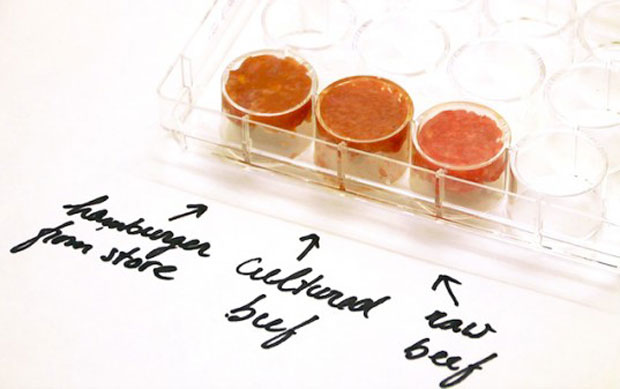Is it beef? Is it from a cow? Is it real? It’s the world’s first burger made from lab-grown beef. It has the texture of real meat, but doesn’t seem to taste very good, though.
According to a report by The San Antonio Express, taste testers were recently not impressed by the meat. There’s no doubt that its taste can and will be improved upon in the near future, but what does lab-grown meat mean for the world?
Mark Post, the Dutch scientist heading the production of lab-grown meat, hopes it will assist in fighting climate change and poverty.
How Was it Made?
The cultured beef was grown in the lab by harvesting muscle tissue from a cow. This tissue was cut into small pieces, separating it into muscle cells and fat. The muscle stem cells were grown and cut so that they formed strands which were later layered to create masses of tissue, resulting in the beef consistency.
Knowing this process might put consumers off – who wants to know that what they’re eating is actually muscle tissue? However, perhaps learning what good lab-grown beef can do for the world is much more important than how it is made.
Beef Changing the Planet
1. It Saves the World’s Resources
According to the United Nations’ ‘Livestock’s Long Shadow’ Report, livestock production takes up 70 percent of all agricultural land. With lab-grown meat, all that is required is a single cell from a cow that is replicated into 40 billion cells.
2. It Uses Less
A 2011 study that was published in the Environmental Science and Technology journal found that lab-grown beef uses 45 per cent less energy than conventionally produced meat. Added to this, it also emits 96 per cent less greenhouse gas and uses 99 per cent less land.
3. It Prevents Animal Killings
In an article posted on The Denver Post, the British branch of PETA stated that meat grown in a laboratory will be the end of abattoirs.
Is it Safe?
Surprisingly, lab-grown beef isn’t considered to be genetically modified because the meat cells are taken from the same stem cells that grow muscle cells in cows. Although it is considered safe, it will only be years before we know its effects on people.
 Image here
Image here
Top image here











